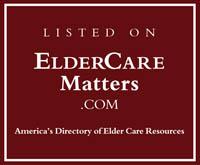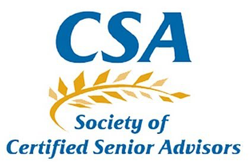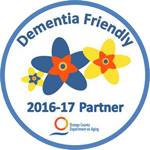Can you find your important “papers” when you need them most (and fast)?
Important paperwork and documents are markers of adulthood, and they become even more important as we age. While we should all strive to have our documents in order, the practice is critical as we grow older.
We never plan to fall ill or become disabled, but it can happen to any of us. Older adults must have their affairs in order so that they and their families are as prepared as possible in the event of an emergency.
Dealing with documents can be overwhelming for seniors, and as a caregiver or family member, you can help make the process much more manageable. Here’s what you need to know about helping your older loved one get their documents in order:
Types of Important Documents
There are many different documents that seniors need to have sorted. Some of the most common include:
Financial Documents
- Tax returns
- Bank account information
- Pensions, 401(k), annuity contracts
- Property deeds
- Vehicle titles
- Documentation of all loans and debts
- Financial power of attorney
Personal Records
- Social security number and card
- Birth certificate
- Marriage license or divorce papers
- Veterans discharge papers (most commonly know as the DD-214) You can order the DD-214 here: https://www.archives.gov/veterans/military-service-records
- Driver’s license
- Passport or any other ID
- Contact information for close friends, relatives, doctors, financial advisors, etc.
- A list and explanation of regular medications
- Legal documents including a will
Health Care
- Health care preferences clearly outlined in a living will
- Health care proxy/power of attorney
- Personal medical history
- Health insurance cards
- Allergies or medical conditions
- Emergency information
End-of-Life Documents
Every adult should have documents in place regarding estate planning and end-of-life, just in case. This is even more urgent for older adults. Families of seniors who pass away without end-of-life documents will face more financial and legal chaos than they need to. Your older loved one should have:
- Life insurance policy information
- Trust documents
- A will
- End-of-life instructions
Store Important Documents
Gathering important documents for yourself or an older loved one is only the first step. For the documents to be useful, they must be accessible. They should be sorted and stored in a master box, which should be kept in a safe place. When possible, create electronic copies that you can store on a save drive via cloud storage or an external hard drive. In some states, you can store documents like a “Health Care POA” with the States “Secretary of State”.
If you have a loved one that is making regular doctors or hospital visits, you may ask if they’d like a copy for the practices “chart”.
Thanks to COMFORCARE Home Care for the bulk of this information.
(704) 491-1090 (cell/direct/text)
(919) 647-9150 (office/after hours)










